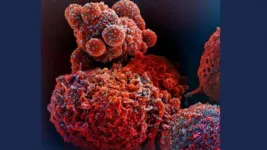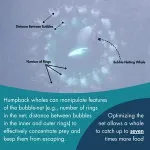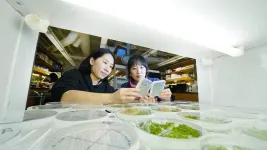(Press-News.org) To evade the human host’s immune response, SARS-CoV-2, the coronavirus that causes COVID-19, uses the machinery of defense cells to induce the expression of unproductive isoforms of key antiviral genes – variant forms of genes that result from disrupted splicing or transcription processes and do not code for functional (protective) proteins. This is a key finding of a study conducted by researchers at the Albert Einstein Jewish Brazilian Hospital (HIAE), the University of São Paulo (USP) and the Federal University of Minas Gerais (UFMG). An article on the study, which offers a foundation for the development of novel therapeutic strategies to combat COVID-19, is published in the International Journal of Molecular Sciences.
Other viruses, including coronaviruses, also distort protein production by disrupting messenger RNA (mRNA) splicing, but SARS-CoV-2 goes further by blocking expression of interferons, a family of proteins that help the immune system fight infection, and modulating specific immune cells. A lack of precise details regarding this process has been a major hindrance to the development of novel options to treat COVID-19.
In the study, which was funded by FAPESP, the researchers set out to confirm the hypothesis suggested in the scientific literature that production of unstable mRNA isoforms can give rise to non-functional proteins.
To do this, they conducted an integrative analysis that combined several transcriptomic and proteomic datasets to arrive at a detailed characterization of the infected host cell landscape, both in vitro and in vivo.
They found that infection by SARS-CoV-2 induced predominant expression of unproductive splicing isoforms in key genes linked to the immune system and antiviral response (IFN signaling genes, ISGs, class I MHC genes, and splicing machinery genes such as IRF7, OAS3, HLA-B and HNRNPH1). These genes also produced fewer “normal” proteins, which in turn were more susceptible to attack by viral proteins.
On the other hand, inflammatory cytokine and chemokine genes (such as IL6, CXCL8 and TNF) mainly produced productive splicing isoforms in response to the infection.
“Although more than 50 papers on COVID-19 transcriptomics have been published, this is the first time this viral strategy has been demonstrated at the molecular level. Moreover, we used only publicly available data,” said Glória Regina Franco, full professor in the Institute of Biological Sciences (ICB) at UFMG and last author of the article.
“By demonstrating the molecular interaction between SARS-CoV-2 and the host’s splicing machinery, we provide fundamental information on potential targets for antiviral medications and immunomodulatory interventions. Our findings can be used to orient therapies that restore normal RNA processing during viral infections, for example,” said Helder Takashi Imoto Nakaya, a senior researcher at HIAE, a professor at USP’s School of Pharmaceutical Sciences (FCF), and penultimate author of the article.
Long COVID and future pandemics
Although the COVID-19 pandemic is over, new publications on the subject are always important, Nakaya said. “Novel coronaviruses can cause severe pandemics. The emergence of SARS-CoV-3, SARS-CoV-4, and so on, is perfectly plausible. The more we find out about the way these viruses work, the better,” he added.
More research on the damage caused by the virus at the molecular level is also important in light of the widespread reports of long COVID, a problem faced by millions of people worldwide and increasingly neglected.
Researchers at Indiana University and Michigan State University in the United States also took part in the study. Besides FAPESP, the funders included CAPES (the Brazilian Ministry of Education’s Coordination for the Improvement of Higher Education Personnel), CNPq (the National Council for Scientific and Technological Development, an arm of the Ministry of Science, Technology and Innovation), and the Research Pro-Rectorate of the Federal University of Minas Gerais (PRPq-UFMG).
About São Paulo Research Foundation (FAPESP)
The São Paulo Research Foundation (FAPESP) is a public institution with the mission of supporting scientific research in all fields of knowledge by awarding scholarships, fellowships and grants to investigators linked with higher education and research institutions in the State of São Paulo, Brazil. FAPESP is aware that the very best research can only be done by working with the best researchers internationally. Therefore, it has established partnerships with funding agencies, higher education, private companies, and research organizations in other countries known for the quality of their research and has been encouraging scientists funded by its grants to further develop their international collaboration. You can learn more about FAPESP at www.fapesp.br/en and visit FAPESP news agency at www.agencia.fapesp.br/en to keep updated with the latest scientific breakthroughs FAPESP helps achieve through its many programs, awards and research centers. You may also subscribe to FAPESP news agency at http://agencia.fapesp.br/subscribe.
END
To subvert immune response, COVID virus stimulates production of proteins without protective function
According to Brazilian researchers, SARS-CoV-2 uses this strategy to manipulate the machinery of the host’s defense cells; The discovery paves the way for the development of novel therapies
2024-08-20
ELSE PRESS RELEASES FROM THIS DATE:
UC Irvine-led team finds that compound in rosemary extract can reduce cocaine sensitivity
2024-08-20
Irvine, Calif., Aug. 20, 2024 — A team of researchers led by the University of California, Irvine has discovered that an antioxidant found in rosemary extract can reduce volitional intakes of cocaine by moderating the brain’s reward response, offering a new therapeutic target for treating addiction.
The study, recently published online in the journal Neuron, describes team members’ focus on a region of the brain called the globus pallidus externus, which acts as a gatekeeper that regulates how we react to cocaine. ...
Purdue researchers receive additional $95K to develop arthritis treatments, drought-resistant soybeans
2024-08-20
WEST LAFAYETTE, Ind. — Researchers in Purdue University’s colleges of Agriculture and Science have received an additional $95,000 from the Trask Innovation Fund to develop patent-pending drought-resistant soybean plants and novel arthritis treatments.
The fund is managed by the Purdue Innovates Incubator, which provides programming for the Purdue University community to ideate, refine and support their solutions. Funding recipients can receive up to $50,000 for their initial project; ...
Social responsibility audits can bias financial ones
2024-08-20
AUSTIN, Texas — During the past decade, auditors have found a booming new business: reviewing reports on companies’ environmental, social, and governance (ESG) activities. ESG reporting among S&P 500 companies grew 80% from 2010 to 2020, with nearly half the companies hiring auditors to give seals of approval.
But while ESG reporting brings new opportunities to auditors, it can also bring new headaches, according to a new study from Texas McCombs. Test subjects who engaged auditors to review their ESG reports often pressured them to be more lenient on their financial reports — and auditors ...
Modic changes linked to microbial differences in lumbar spine
2024-08-20
August 20, 2024 — Among patients undergoing lumbar spinal fusion, the presence of Modic changes is associated with differences in microbial diversity and metabolites in the lumbar cartilaginous endplates (LCEPs), reports a study in The Journal of Bone & Joint Surgery. The journal is published in the Lippincott portfolio by Wolters Kluwer.
"These findings suggest that changes in the microbiota may disrupt unsaturated fatty acid metabolism within the LCEP microenvironment, potentially influencing the onset and progression of Modic changes [MCs]," according to the new research ...
Atul Malhotra, M.D., receives prestigious lifetime achievement award
2024-08-20
Atul Malhotra, MD, Peter C. Farrell Presidential Endowed Chair in Pulmonary Medicine at University of California San Diego School of Medicine and pulmonologist at UC San Diego Health, has been named recipient of the 2024 Sleep and Respiratory Neurobiology Lifetime Achievement Award by the American Thoracic Society.
The award is given annually to honor the career of an individual who has made outstanding contributions to the field of sleep or respiratory neurobiology in terms of both scientific and scholarly advances, as well as in mentoring, teaching and advocacy to advance public health.
Recipients are recognized for achievement in scholarship over the course of an entire ...
Brigham researchers use AI tools to uncover connections between radiotherapy for lung cancer and heart complications
2024-08-20
Researchers from Brigham and Women’s Hospital, a founding member of the Mass General Brigham healthcare system, have used artificial intelligence tools to accelerate the understanding of the risk of specific cardiac arrhythmias when various parts of the heart are exposed to different thresholds of radiation as part of a treatment plan for lung cancer. Their results are published in JACC: CardioOncology.
“Radiation exposure to the heart during lung cancer treatment can have very serious and immediate effects on a patient’s cardiovascular ...
New view of North Star reveals spotted surface
2024-08-20
ATLANTA — Researchers using Georgia State University’s Center for High Angular Resolution Astronomy (CHARA) Array have identified new details about the size and appearance of the North Star, also known as Polaris. The new research is published in The Astrophysical Journal.
Earth’s North Pole points to a direction in space marked by the North Star. Polaris is both a navigation aid and a remarkable star in its own right. It is the brightest member of a triple-star system and is a pulsating variable star. Polaris gets brighter and fainter periodically as the star’s diameter ...
UofL researchers gain $3.6 million to study and prevent effects of arsenic exposure
2024-08-20
University of Louisville researchers have received $3.6 million in new grant funding to study the role of arsenic exposure in causing cancer and other major health concerns. And, they think there’s a simple, off-the-shelf solution — zinc — that could help prevent some of its worst effects.
Arsenic is highly poisonous and occurs naturally in some rocks and soil. As a result, the most common source of exposure is drinking contaminated water, particularly ground water from private wells. More than 43 million people in the U.S. alone get their water from private wells, including many in areas of Kentucky that may be contaminated ...
Special issue of Criminology & Public Policy examines policing practice and policy
2024-08-20
The last two decades have been fraught for the policing profession, with police facing internal and external challenges to their public safety and legitimacy mandates. Much more research, analysis, and insights into policing are needed to inform policy, practice, and reforms in law enforcement and to achieve evidence-based policing. To move toward these goals, the current Editors-In-Chief of Criminology & Public Policy have published a second special issue on policing practice and policy, following their first special issue in 2020. This issue features thought-provoking and timely studies from leading researchers in the field on a variety of challenges facing ...
UBC research pinpoints how early-life antibiotics turn immunity into allergy
2024-08-20
Researchers at the University of British Columbia have shown for the first time how and why the depletion of microbes in a newborn's gut by antibiotics can lead to lifelong respiratory allergies.
In a study published today in the Journal of Allergy and Clinical Immunology, a research team from the school of biomedical engineering (SBME) has identified a specific cascade of events that lead to allergies and asthma. In doing so, they have opened many new avenues for exploring potential preventions and treatments.
"Our research finally shows how the gut bacteria and antibiotics shape a newborn's immune system to make them more prone to allergies," said ...
LAST 30 PRESS RELEASES:
Korea University, Stanford University, and IESGA launch Water Sustainability Index to combat ESG greenwashing
Molecular glue discovery: large scale instead of lucky strike
Insulin resistance predictor highlights cancer connection
Explaining next-generation solar cells
Slippery ions create a smoother path to blue energy
Magnetic resonance imaging opens the door to better treatments for underdiagnosed atypical Parkinsonisms
National poll finds gaps in community preparedness for teen cardiac emergencies
One strategy to block both drug-resistant bacteria and influenza: new broad-spectrum infection prevention approach validated
Survey: 3 in 4 skip physical therapy homework, stunting progress
College students who spend hours on social media are more likely to be lonely – national US study
Evidence behind intermittent fasting for weight loss fails to match hype
How AI tools like DeepSeek are transforming emotional and mental health care of Chinese youth
Study finds link between sugary drinks and anxiety in young people
Scientists show how to predict world’s deadly scorpion hotspots
ASU researchers to lead AAAS panel on water insecurity in the United States
ASU professor Anne Stone to present at AAAS Conference in Phoenix on ancient origins of modern disease
Proposals for exploring viruses and skin as the next experimental quantum frontiers share US$30,000 science award
ASU researchers showcase scalable tech solutions for older adults living alone with cognitive decline at AAAS 2026
Scientists identify smooth regional trends in fruit fly survival strategies
Antipathy toward snakes? Your parents likely talked you into that at an early age
Sylvester Cancer Tip Sheet for Feb. 2026
Online exposure to medical misinformation concentrated among older adults
Telehealth improves access to genetic services for adult survivors of childhood cancers
Outdated mortality benchmarks risk missing early signs of famine and delay recognizing mass starvation
Newly discovered bacterium converts carbon dioxide into chemicals using electricity
Flipping and reversing mini-proteins could improve disease treatment
Scientists reveal major hidden source of atmospheric nitrogen pollution in fragile lake basin
Biochar emerges as a powerful tool for soil carbon neutrality and climate mitigation
Tiny cell messengers show big promise for safer protein and gene delivery
AMS releases statement regarding the decision to rescind EPA’s 2009 Endangerment Finding
[Press-News.org] To subvert immune response, COVID virus stimulates production of proteins without protective functionAccording to Brazilian researchers, SARS-CoV-2 uses this strategy to manipulate the machinery of the host’s defense cells; The discovery paves the way for the development of novel therapies





